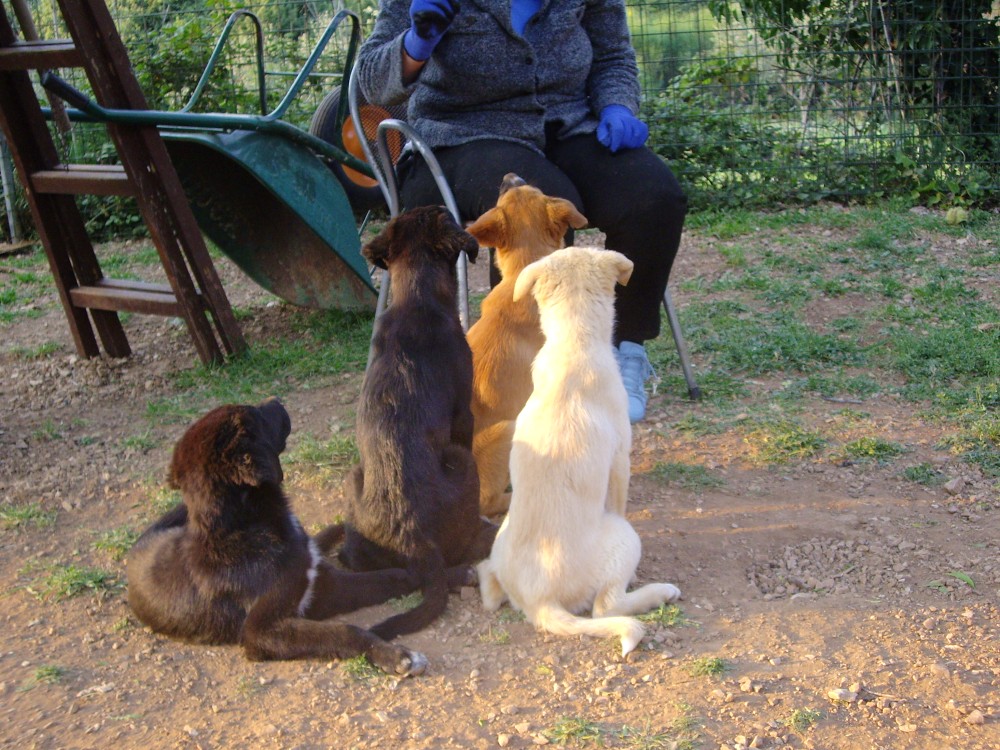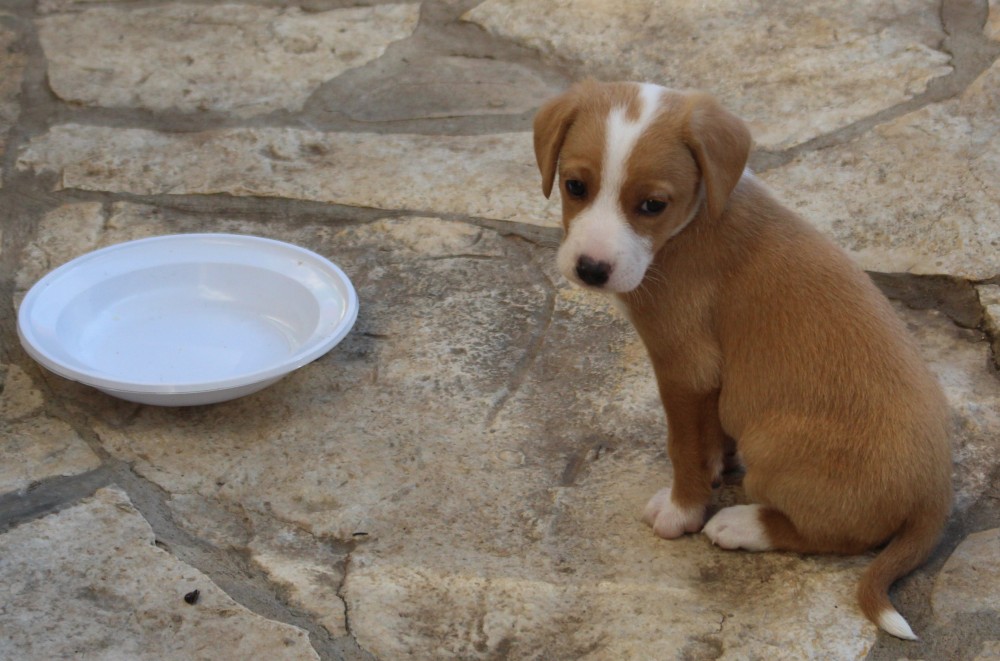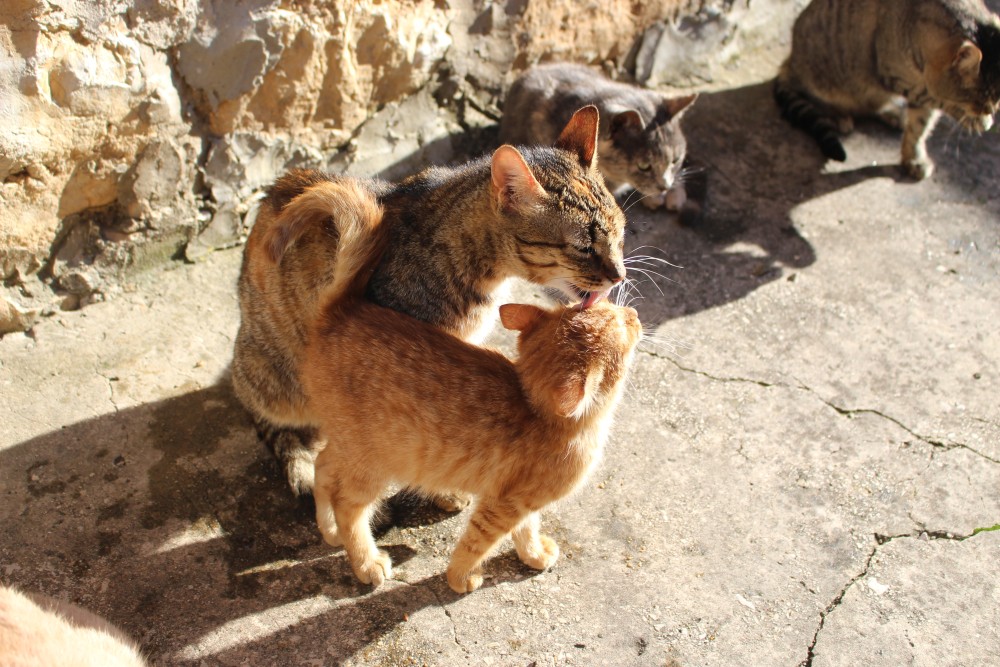May 21, 2020 - What is the situation with animal shelters in Croatia in the corona era, and who is looking after the animals? A new TCN series meets the volunteers behind the animal shelters and associations around Croatia. Today, TCN meets Eco Hvar on the island of Hvar.
There are hundreds of incredible shelters and associations in Croatia working tirelessly, with little to no support, to ensure no animal is left behind. In a new TCN series, we meet the people behind the animals.
Today, TCN meets Eco Hvar on the island of Hvar.
First, tell us a bit about the history of your shelter/association.
It all started in September 2004 with Babe, the dog who should have been a rose. My Croatian isn't that good, despite my being a member of Dalmatia's oldest surviving noble family. But it wasn't due to linguistic failings that I set out to buy a rose and came back with a black labrador called Babe. The scorn that was heaped on me for my poor grasp of the language after this incident was unjust. No, I wasn't looking for a dog-rose. And rescuing Babe wasn't all my fault either.
It happened like this: my distant relative Igor Skelin runs Jelsa's garden centre, a place where one could buy plants, including roses, but not dogs. Babe belonged to Branko, one of Igor’s staff, and was generally to be found in the hot-house sitting quietly under the table or wandering around, causing no trouble to anyone. She was a beautiful, nicely mannered and contented dog, as labradors tend to be.
On this particular Saturday morning she was sitting under the table looking unusually morose. No sign of Branko, so I asked after him. Igor told me that he was very ill in hospital, and had asked Igor to find Babe a good home or have her put down. Babe had been in the care of one of Branko’s relatives, but had run off and gone missing for several days. Today she had reappeared at the garden centre, totally unexpectedly.
The news was a shock. I digested it for a few moments. I had a sense of some inescapable destiny. I looked at my brother, another Branko. He looked at me. Dog-lovers both, the pulling on heart-strings was almost audible. We had a short silent consultation, and he willed me forward. Easy enough for him, he would be leaving shortly for the UK, leaving me holding the Babe. “Well,” I said slowly, “If you really can’t find her a home, let me know, perhaps I…” Igor was on the case like a shot. Announcing that there was no chance of anyone else taking her on, he opened the car door and Babe hopped inside.
Roses were forgotten and we headed off home. I was musing, rather late in the day, on whether Babe would fit in. I had brought with me two dogs from the UK when I had relocated to Dalmatia earlier in 2004. They were both females, and used to having their territory to themselves. How would they take to the new arrival? Would they fight? And what’s more, one was called Beba, there could be a confusion of identities. The chain of command would be difficult to maintain. Oh dear. My low spirits sank another notch when Bella and Beba greeted our arrival with resounding hostile barking.
To my surprise, all went well. The barking subsided when the two realized Babe was coming in. Babe entered, there were introductions all round, tails wagged, and she settled in without a hitch. Perhaps Bella and Beba recognized a kindred spirit, as their mother Connie was a labrador, albeit golden rather than black. Babe lived on happily for several years in Pitve, and eventually died naturally and peacefully in her sleep. Happily her former owner Branko recovered from his illness and returned to the island, although he was unable to take Babe back.
So began the influx of canine intruders into our peaceful home in Pitve. And, yes, my Croatian has improved in the interim. No, I have not set out to buy a rose since. But every year there are homeless or unwanted dogs wandering around the island, and I have taken in as many of them as I could manage at any given time. Sadly, I have been forced to leave even more to their fate.
There are just too many unwanted dogs being born on the island, or in some cases being brought here. There is no organization on the island responsible for caring for these poor animals. It seems this is a problem throughout Dalmatia. The obvious thing to do was to establish a framework in order to carry out projects which would address the problems. This is how ECO HVAR for Animals, now a registered charity, was born.

How many animals do you currently house? What is the largest number of animals you’ve taken in?
I am currently looking after 20 dogs, 13 of them puppies, due to the COVID-19 blockage of our usual channels for passing them to the shelter. In my village, we (3-4 of us) also feed stray cats.
How do you get animals you've taken in to their new owners? Do you connect animals with owners only in Croatia or abroad, too?
Occasionally, we find new owners for dogs and cats on the island, but mostly we coopoerate with the Bestie Animal Shelter in Kaštel Sućurac on the mainland. Often the dogs are taken abroad, and in all cases we follow their progress as far as we can. The Bestie animal shelter is exemplary: full care and kindness; a volunteer programme; educational visits for children; socialization for the rescue dogs; walks and summertime swimming sessions. You can see a little of their work on their fb page.
**TCN also has an interview with Zvonimir, the owner of Bestie, coming up!
Stari Grad Cat & Kitten Fund on Facebook - Last year Jelsa Council agreed to do the same.
How much does sterilisation usually cost? Do vets offer discounts for street cats or special circumstances?
The local vet does give a discount for this: the local Councils have an annual contract with the vet, covering sterilizations for a certain number of cats at set fees. (Costs c. 250 - 400 kn, varies according to male/female, pregnant or not). In cases of hardship, they may also offer a discount for street cats which are brought in by recommendation from Eco Hvar.
You can find our recommendations on how to help cats on the island HERE
Poisoning street cats is another issue in the area. Is this considered a crime in Croatia? Where should someone report this should they witness it? Are there fines/punishments in place?
Animal poisonings are a problem. In principle, it is a punishable offence under the Law for the Protection of Animals. In practice, it is down to individuals to make a complaint to the police and local komunalni redar / town warden, name possible suspects, and provide proof, which obviously involves financing an autopsy on the dead animals. This last is an expensive process, especially from the island. In a small place, the poisoners are usually easily identifiable, but few people want to come into conflict with their neighbours by raising a case against them which will take years to resolve through the courts.
You can read more about this issue HERE

What about the treatment of dogs?
One special problem is the treatment of hunting dogs, who are ill-treated, starved or and/or abandoned without mercy by many owners. We do our best to save the ones we can via the inspectors, but it is extremely difficult. They need special rescue facilities, which I would dearly love to establish.
You can find our recommendations on how to help dogs on the island HERE
Can you explain the process of fostering animals with your shelter/association?
Fostering is well organized in Zagreb, but not formally here. Both fostering & homing stray or unwanted animals are difficult on an island with a limited population, and even more limited number of animal lovers.
Do you receive any support from the city, county, or state? If so, how much/in what way?
Our charity does not receive support from any public body, but relies solely on donations, so far. Our money is mainly spent on placing dogs in the animal shelter, and financing medical costs and sometimes sterilizations for low-income owners/carers.

What are the best ways the local community and people from abroad can get involved?
Eco Hvar welcomes everyone who wishes to support our work in any way. There are no membership fees. If you wish to become involved, or simply to demonstrate support of our aims, please print out and fill in the application form and post it back to our address: Pitve 93, 21465 Jelsa, Croatia / Hrvatska. For speed, you can email us your details, or scan the signed form back to us on our email contact address, although the original is appreciated!
You can learn more about Eco Hvar on their website.
Do you have an animal shelter or association in Croatia and want to share your story? Get in touch at This email address is being protected from spambots. You need JavaScript enabled to view it..
To read more about lifestyle in Croatia, follow TCN's dedicated page.


